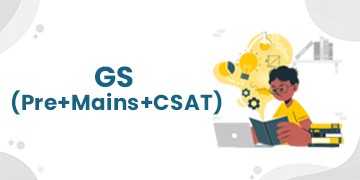
706 1st Floor Dr. Mukherjee Nagar Near Batra Cinema Delhi – 110009
Classroom General Studies Course: A Comprehensive Overview
Introduction
A Classroom General Studies course aims to provide students with a broad understanding of essential subjects that contribute to their academic and personal growth. This course typically encompasses various fields, including history, geography, political science, economics, science, and current affairs. By integrating these disciplines, students enhance their critical thinking skills, cultural awareness, and overall knowledge base.
Objectives of the Course
- Comprehensive Understanding: The course seeks to offer students a well-rounded grasp of key concepts across different subjects, emphasizing the interconnectedness of knowledge.
- Development of Critical Thinking Skills: Students are encouraged to engage critically with various issues, analyze information, and make informed decisions based on evidence and logical reasoning.
- Awareness of Current Events: Staying updated on current affairs helps students become informed citizens capable of participating in meaningful discussions about societal issues.
- Preparation for Competitive Exams: A solid foundation in general studies is essential for students preparing for competitive examinations, as many include questions related to general knowledge and current events.
Course Content Overview
The Classroom General Studies course generally includes the following areas:
- History: An exploration of significant historical events, movements, and figures that have influenced societies and cultures, with a focus on both global and regional history.
- Geography: A study of physical and human geography, covering landforms, climate, population, resources, and the relationship between humans and the environment.
- Political Science: An examination of political systems, theories, governance structures, and citizens’ roles in democratic processes, including political ideologies and institutions.
- Economics: An introduction to fundamental economic principles, such as supply and demand, market structures, and the government’s role in the economy, along with an understanding of economic indicators and policies.
- Science and Technology: An overview of basic scientific concepts, technological advancements, and their societal implications, including topics in environmental science, biology, physics, and chemistry.
- Current Affairs: A discussion of contemporary issues and events, including national and international news, social movements, and advancements in science and technology.
Teaching Methodologies
- Interactive Lectures: Engaging lectures that promote student participation and discussion, enhancing understanding of the material.
- Group Activities: Collaborative projects and discussions that encourage teamwork and critical thinking, allowing students to examine topics from various viewpoints.
- Multimedia Resources: The use of videos, documentaries, and online materials to supplement learning and provide visual context for theoretical concepts.
- Assessment and Evaluation: Regular quizzes, assignments, and exams to evaluate student comprehension and retention of course content.
Conclusion
A Classroom General Studies course provides students with crucial knowledge and skills applicable in both academic and real-world situations. By fostering a comprehensive understanding of various subjects, promoting critical thinking, and keeping students informed about current events, this course prepares them for future challenges, including competitive exams and active participation in society. With a well-rounded education in general studies, students can confidently navigate the complexities of the world.
